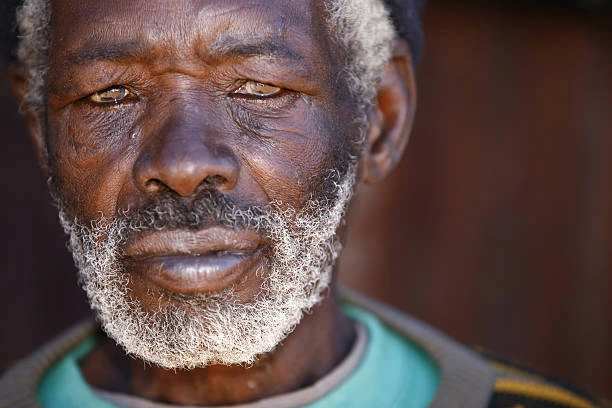Author's details
- Dr. Khashau Eleburuike
- MBBS (Ilorin) MSc. Global Health Karolinska Institute.
- Resident doctor in family medicine in Northern Sweden.
Reviewer's details
- Dr Abdulgafar Lekan Olawumi
- MBBS, MHE, MPH, FWACP
- FMCFM Department of Family Medicine and Geriatric Centre of Aminu Kano Teaching Hospital Kano, Nigeria.

- Date Published: 2025-04-19
- Date Updated: 2025-04-19
Patient Information: Ageing in Sub-Saharan Africa
Key Messages
What is Ageing?
Ageing is a natural process where physical and mental changes occur over time. With good health care, support, and social inclusion, people can live long and healthy, and enjoy a good quality of life as they age.
Sub-Saharan Africa is experiencing a growing number of older adults due to improvements in health care and declining fertility rates. While this is a positive sign of progress, it also presents challenges for communities, health systems, and families.
Key Facts:
- The number of people aged 60 and above in Sub-Saharan Africa is expected to triple by 2050.
- Most older adults live in rural areas with limited access to health services.
Many depend on family for care, especially in the absence of formal social welfare systems.
As people age, the risk of certain health issues increases. In Sub-Saharan Africa, common health problems in older adults include:
- Non-communicable diseases (NCDs) like hypertension, diabetes, and heart disease.
- Sensory impairments such as vision and hearing loss.
- Mental health issues, including depression and dementia.
- Infectious diseases like HIV and tuberculosis, which still affect some older people.
- Mobility problems and falls, often due to weaker bones or muscles.
Older adults in Sub-Saharan Africa may face:
- Poverty, especially if they lack pensions or savings.
- Limited access to health services, especially in rural areas.
- Social isolation, especially when younger family members migrate for work.
- Age discrimination and cultural beliefs that may affect their dignity or access to care.
- Pension coverage remains low across Sub-Saharan Africa, leaving many older people without a stable source of income in their later years.
- Health Check-ups: Regular screening for blood pressure, diabetes, and eye problems.
- Good Nutrition: A balanced diet rich in fruits, vegetables, and clean water.
- Physical Activity: Gentle exercises like walking or stretching help maintain strength and flexibility.
- Mental Well-being: Staying socially connected, involved in community activities, and seeking help when feeling sad or confused.
- Respect and Inclusion: Older adults thrive when they are valued, respected, and included in decision-making.
- Social insurance: Inclusion of older people in the social insurance scheme.
- Visit your local health clinic for regular check-ups.
- Join local support or social groups for older adults.
- Talk to a health worker if you or a loved one is struggling physically or emotionally.
Remember: Ageing is a journey we all take. With care, support, and respect, older adults can continue to live meaningful and healthy lives.
- United Nations Department of Economic and Social Affairs (UNDESA). (2022). World Population Ageing Report. https://www.un.org
- World Health Organization (WHO). (2021). Global Report on Ageism. https://www.who.int
- Aboderin, I. (2017). Ageing in Sub-Saharan Africa: Spaces and Practices of Care. Journal of Population Ageing, 10(3), 223–234.
- HelpAge International. (2020). The situation of older people in Africa. https://www.helpage.org
